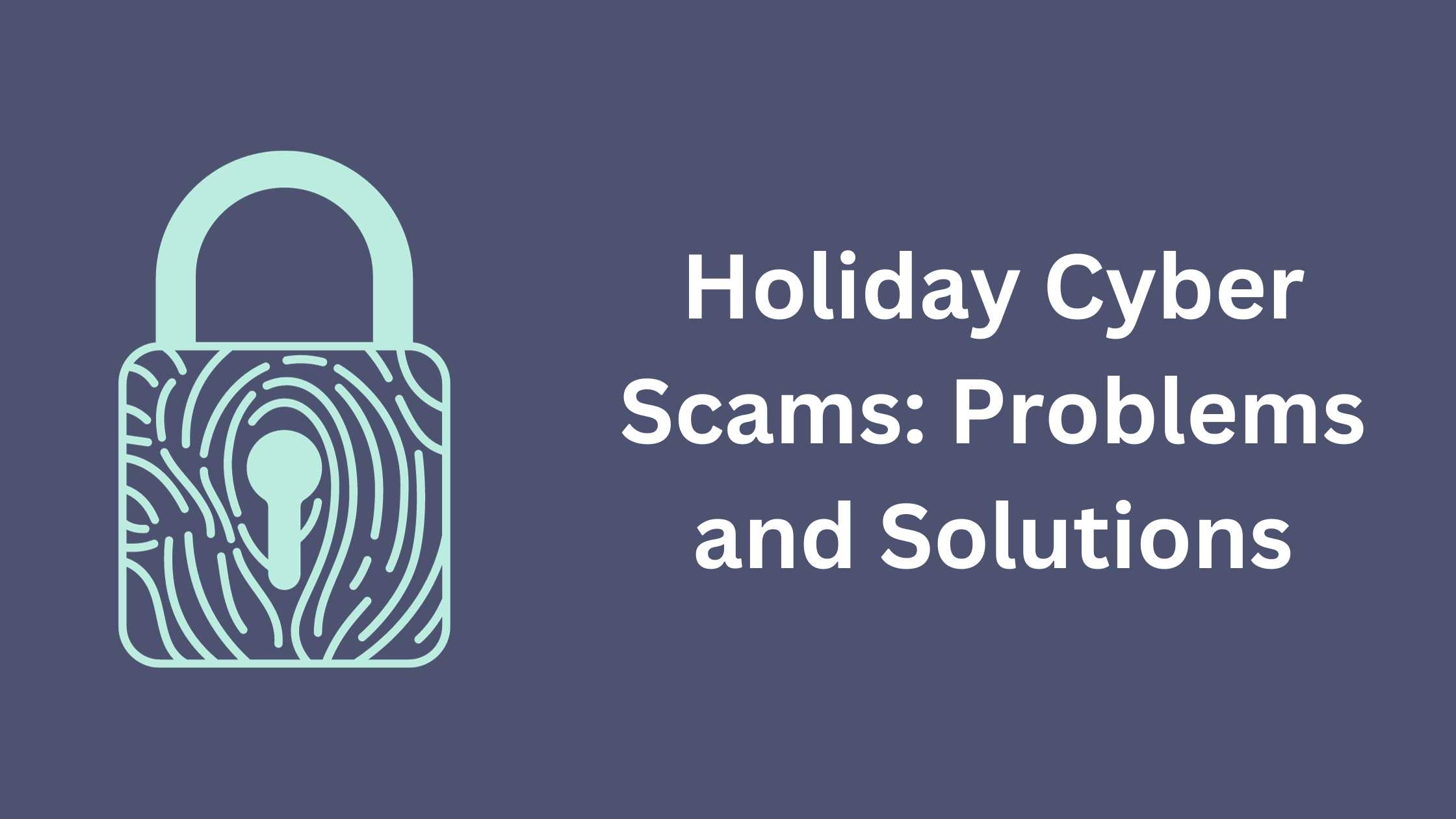
Holiday Cyber Scams: Problems and Solutions
During the holiday season, the surge in online activities brings not only joy but also an increased risk of falling victim to cyber scams, according to CyberGhost’s post. This article aims to shed light on the prevalent issues surrounding holiday cyber scams, offering insights into preventive measures and solutions to ensure a secure and enjoyable online experience.
Why Prevent Holiday Cyber Scams?
- Protecting Finances: Cyber scams can lead to financial losses through fraudulent transactions or theft of sensitive financial information.
- Safeguarding Personal Data: Preventing cyber scams helps protect personal data from being compromised, reducing the risk of identity theft.
- Maintaining Online Safety: Avoiding cyber scams ensures a safe and secure online environment for oneself and others.
- Preserving Trust and Peace of Mind: Preventing scams preserves trust in online transactions and platforms, offering peace of mind during the holiday season.
Tips to Prevent Holiday Cyber Scams
Verify Website Authenticity
Shop from reputable websites with secure URLs (https://) and look for trust seals or certifications.
Use Strong Passwords
Create unique and complex passwords for each online account to prevent unauthorized access.
Beware of Phishing Emails
Be cautious of unsolicited emails asking for personal information or prompting to click on suspicious links.
Update Security Software
Ensure antivirus and security software are up-to-date to guard against malware and viruses.
Enable Two-Factor Authentication (2FA)
Activate 2FA wherever available for an additional layer of security.
Avoid Public Wi-Fi for Sensitive Transactions
Refrain from using public Wi-Fi for financial transactions or sharing sensitive data.
Check Bank Statements Regularly
Monitor bank statements frequently for any unauthorized transactions.
Be Wary of Unrealistic Deals
Beware of overly discounted or unrealistic offers that seem too good to be true.
Educate Yourself
Stay informed about common scam tactics and be vigilant against suspicious activities.
Back Up Data
Regularly back up important data to prevent loss in case of ransomware attacks or data breaches.
Addressing Holiday Cyber Scams: Solutions and Strategies
1. Enhanced Cybersecurity Awareness:
Educating individuals about various cyber threats during the holiday season empowers them to identify and thwart potential scams.
2. Multi-Factor Authentication (MFA):
Encouraging the use of MFA across online platforms significantly fortifies security by requiring additional authentication steps.
3. Robust Anti-Phishing Measures:
Implementing robust anti-phishing solutions aids in identifying and blocking malicious phishing attempts.
4. Secure Payment Gateways:
Ensuring secure and encrypted payment gateways provides a safer environment for online transactions.
5. Regular Security Updates:
Promptly updating software, browsers, and security patches helps address vulnerabilities that cybercriminals may exploit.
6. Heightened Customer Verification:
Implementing stringent customer verification processes aids in preventing unauthorized access or transactions.
7. Collaboration for Cybersecurity Education:
Collaborating with authorities, organizations, and communities to promote cybersecurity education enhances overall awareness and preparedness.
8. Improved Detection Systems:
Investing in advanced detection systems helps identify and counter evolving cyber threats promptly.
9. Transparent Policies and Information Sharing:
Ensuring transparency in policies and sharing information about prevalent scams fosters a more informed and cautious online community.
10. Strengthening Legal Frameworks:
Enhancing legal frameworks and regulations pertaining to cybercrime enables more stringent actions against cybercriminals.
FAQs
What are common holiday cyber scams?
Common scams include phishing emails, fake charity solicitations, counterfeit websites, and fraudulent deals.
How can I identify a fake website?
Look for secure URLs (https://), verify trust seals, check for spelling errors or irregularities, and read reviews.
What should I do if I receive a suspicious email?
Do not click on any links or provide personal information. Report the email as spam and delete it.
Are all holiday deals too good to be true?
While many genuine discounts exist, overly unrealistic deals may indicate potential scams.
Can scammers steal financial information through public Wi-Fi?
Yes, using public Wi-Fi for financial transactions can expose sensitive data to hackers. It’s advisable to avoid it.
How can I protect myself from ransomware attacks?
Regularly back up data, update security software, and avoid clicking on suspicious links or downloading unknown attachments.
What should I do if I fall victim to a cyber scam?
Contact your bank, change passwords immediately, report the incident to the relevant authorities, and consider identity theft protection services.
Are there secure payment methods for online shopping?
Secure methods include credit cards with fraud protection, payment gateways with encryption, and trusted payment apps.
Can cyber scams affect social media accounts?
Yes, scams can compromise social media accounts, leading to identity theft or spreading of malware.
How can I report a scam or cybercrime?
Report cybercrimes to law enforcement agencies, the Federal Trade Commission (FTC), or the Internet Crime Complaint Center (IC3).
Is holiday season cyber insurance available?
Some insurance providers offer cyber insurance covering various cyber risks during the holiday season.
Do legitimate charities solicit donations online during the holidays?
Yes, legitimate charities may seek donations online, but it’s crucial to verify their authenticity before contributing.
How can I detect if a charity is fake?
Research the charity’s legitimacy through credible sources, check their registration, and review their financial transparency.
Can holiday cyber scams lead to identity theft?
Yes, cyber scams can result in identity theft, compromising personal information for fraudulent activities.
Are there age-specific cyber scams during the holidays?
Scams targeting various age groups, such as elderly exploitation or youth-oriented scams, may occur during the holiday season.
Conclusion
Staying vigilant and implementing precautionary measures during the holiday season is essential to mitigate the risks posed by cyber scams. By fostering awareness, utilizing secure practices, and staying informed, individuals can contribute to a safer online environment, ensuring a joyful and secure holiday experience for everyone.






